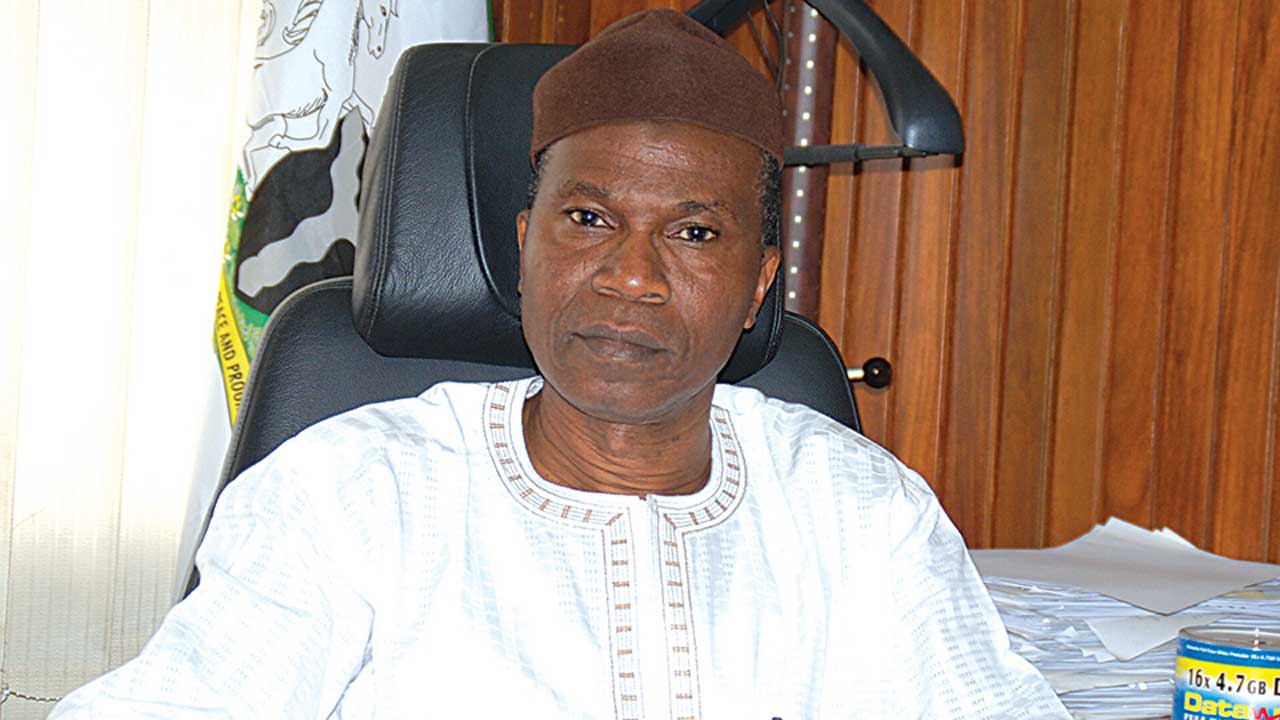By Abdullahi W. Yunusa
Whatever that has a beginning, surely and naturally too, has an end. In same manner and fashion, every story, journey, odyssey, reign, expedition or human activity has an end, but conversely, every ending is equally a new beginning. Essentially, our sojourn here on earth is marked by a beginning and an end.
For Dr. Latif Demola Busari, whose four year’s tenure and final term as the Executive Secretary of the National Sugar Development Council reaches its crescendo this week, having been earlier reappointed for a second term in 2017 by President Muhammadu Buhari, it is indeed the end as the helmsman at the NSDC, but a new beginning as he pursues other interests in life. Without a shred of equivocation or pandering to sentiments, his stewardship or stint as the Executive Secretary of the Council was marked by a litany of institutional reforms, sector-specific policies, initiatives and programmes geared towards actualizing the corporate mandate of the National Sugar Development Council.
Undoubtedly, Dr. Busari has taken the Council a notch higher from where he met it eight years ago as a struggling federal agency that couldn’t boast of a befitting office space to operate from. On assumption of office first in 2012, he set machinery in motion to quickly address institutional ills such as low productivity, redundancy, welfare, absenteeism, general indiscipline and poor performance among members of staff which portrayed the Council as just a salary-paying organization with productivity as its lowest ebb.
He was restless as he was determined to turnaround the fortunes of the Council and position it as a respected, productive and forward-thinking government agency where efficiency, effectiveness, hard work, transparency, discipline, professionalism and integrity are never compromised or toyed with. Regardless of the plethora of administrative, policy and institutional hurdles that lined up against him, he remained resolute and firm in his avowed determination to build a sugar industry that will position Nigeria as a net exporter of the commodity, revive the sector and make it economically viable and will be able to attract investors.
The National Sugar Development Council (NSDC) was established by Decree 88 of 1993, now an Act of the National Assembly, Act Cap. No. 78 LFN of 2004, Amended in 2015, to catalyze the development of the sugar industry with a view to ensuring that Nigeria attains at least, 70% self-sufficiency in her sugar requirement within the shortest possible time and even export to earn foreign exchange.
Upon assumption of office as the E.S. first in 2012, he sets for himself a 4-point target that will transform the Council and its capacity to execute its mandate. These include; securing easier access to Council’s Finance. Council had experienced lack of budgetary allocation for 9 out of its 19 year’s existence especially between 2002 and 2007 during which it was starved even of staff salaries, in spite of the existence and accruals in Sugar Levy.
Secondly, restructuring of the Council to make it a leaner and focused government agency where productivity and merit will form the basis for upward staff mobility. This included a revision of the organogram, inter-departmental transfers, re-training of staff to fit different job specifications and conduct of a skills gap analysis to determine the number and capacities of new staff to be employed.
Thirdly, the amendment of the NSDC Decree of 1993. This was critical and needed to provide legislative backing to some of the key provisions of the NSMP in the Council’s Enabling Law in order to give comfort to investors on the safety of their investment. This was achieved when the Amended Bill passed by both Houses of the 7th Assembly was signed into law by the Mr President in May 2015.
Lastly, the icing on the cake was the acquisition of a befitting corporate headquarters for the Council following the erroneous dispossession of its offices in 2006 under the ‘Sale of Federal Government Houses’ policy of the then government. Council has had to move from one rented accommodation to another on 4 different occasions over the period. In May 2015, Council finally moved into the Sugar House, its new official Headquarters at 45 Oro Ago Street, Garki II, Abuja.
Topmost on his to-do list was the need for a sectoral policy document or roadmap that will guide and drive activities in the sector; investment in research and development, reliance on modern technology and partner leading sugar producing nations and training institutes across the globe. This thinking gave birth to the sugar sector policy document popularly called the Nigeria Sugar Master Plan (NSMP).
The Nigeria Sugar Master Plan (NSMP) is considered one of the most remarkable efforts by key stakeholders in the sugar sector to put Nigeria on the enviable map of sugar producing nations in the world. Finally, at its meeting held on Wednesday, 19th September 2012, the Federal Executive Council approved the Master Plan. But actual implementation of the roadmap began a year later, 2013.
Dr. Busari has in last eight years in office matched his words with actions as it relates to Nigeria’s drive to attain self-sufficiency in sugar production. Under his watch, the Backward Integration Programme component of the NSMP undertaken by the trio of Dangote Sugar Refinery, BUA Sugar Refinery and Golden Sugar Company is doing remarkably well.
In 2018, the Golden Sugar Company completed its N60 billion Sunti Golden Sugar Estate in Sunti, Niger state and was commissioned by President Muhammadu Buhari. The Dangote Sugar Refinery has two BIP sites located in Numan, Adamawa State and Tunga, in Nasarawa State. While the BUA Sugar Refinery has its BIP site in Lafiagi, Kwara State where work has reached advanced stage. The BUA project was billed to be commissioned in November 2020 but was put off due to the coronavirus pandemic which made it impossible for them to bring in machineries they had bought. All the projects are billed to be completed and commissioned before 2023, which is the final year for the NSMP roadmap.
To his credit, foresight and visionary disposition, Nigeria now has two sugarcane bio-factories located in Zaria, Kaduna State and Ilorin, Kwara State. The establishment of both bio-factories earned Nigeria and the National Sugar Development Council resounding applause and commendations from within and outside the country given the fact that it is the first of its kind in Nigeria. Both sugarcane bio-factories when operating in full capacity would supply healthy, pure and disease-free cane varieties to sugar estates and farmer outgrowers in the country.
Dr. Busari fits the description of a restless and forward-thinking administrator who doesn’t stop until results are achieved and seen to be achieved. In his thinking, anything worth doing is worth doing well.
Abdullahi W. Yunusa wrote from Abuja

 Join Daily Trust WhatsApp Community For Quick Access To News and Happenings Around You.
Join Daily Trust WhatsApp Community For Quick Access To News and Happenings Around You.


